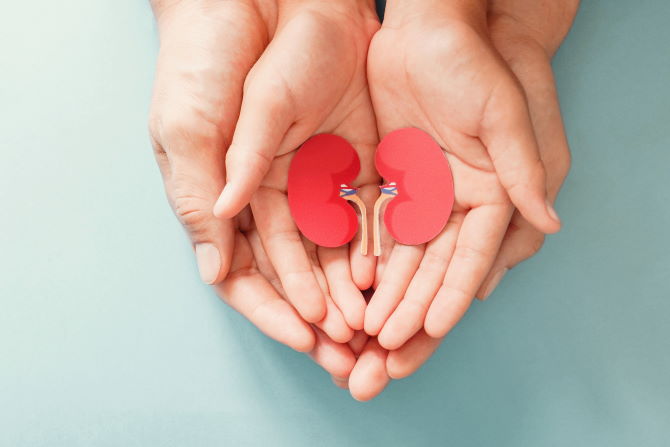
Kidney Cancer: All you need to know!
Kidney cancer is a type of cancer that occurs in the cells of the kidney. It is also known as renal cell carcinoma. In kidney cancer, The normal cells become malignant and start growing out of control, leading to a formation of tumors. It first starts appearing in the lining of tiny tubes of the kidney but with regular screenings it can be found at the early stages or one can reduce the risk of developing kidney cancer. And if caught early, it is easier to treat successfully. However, sometimes these tumors can grow quite large if they go unnoticed.
Kidneys are two bean shaped organs lying in your lower abdomen on each side of the spine. The function of kidneys is to filter your blood and remove waste products. The filtration leads to the formation of urine.
Symptoms of Kidney Cancer
In many cases, there are no early symptoms indicating kidney cancer. Though, they may appear as the tumor grows larger. But some of the other potential symptoms of kidney cancer are:
DIAGNOSIS
- Blood in the urine
- Loss of Appetite
- Lump in the either side of abdomen
- Pain on either side of the abdomen that doesn’t go away.
- Unexplained weight loss
- Fever for no obvious reason
- Extreme Fatigue
- Unexplained swelling in the ankles or legs
- Other infections
Symptoms may vary, if the infection has spread to other parts of the body. Some of those symptoms are:
- Shortness of breath
- Coughing up blood
- Bone pain
These symptoms are not specific to kidney cancer. The reason could be other as well but if you are experiencing any of them, consider consulting the doctor immediately.
Causes of Kidney Cancer
The exact cause of kidney cancer is yet unknown but there are several factors that may increase your risk of developing kidney cancer.
- Age: Risk of kidney cancer increases as you age.
- Obesity: Obese people have a higher risk of developing kidney cancer than people who have a healthy weight.
- Smoking: Those who smoke have a greater risk of developing kidney cancer when compared to nonsmokers. The risk decreases after you quit.
- Treatment for kidney failure: People who are on long-term dialysis also have increased chances of kidney cancer.
- Family history: The risk of kidney cancer is higher if close family members have had the disease.
Prevention of Kidney Cancer
Though there are no such factors that guarantee prevention against kidney cancer, certain factors may reduce your risk.
- Quit smoking: Try quitting smoking, if you smoke. There are many options for quitting including medications, support programs, and nicotine replacement products. Consult your doctor if you are planning to quit or have any query.
- Maintain a healthy weight: Eat healthy and do exercise to maintain a healthy weight. If you’re overweight, try reducing the number of calories you consume each day. Try to be physically active for most days of the week. Consult your doctor about other healthy strategies which may help you lose weight.
- Keep your blood pressure in control: Regularly monitor your blood pressure, if it is high, discuss the treatment to keep it in control. Do follow a healthy routine like exercising, weight loss and diet changes. If the problem persists, try consulting a doctor.
Diagnosis of Kidney Cancer
Urine and blood tests: Testing your urine or blood gives clues about what’s causing signs and symptoms.
Imaging tests: It allows your doctor to visualize a developed tumor or abnormality. It may include ultrasound, MRI, CT Scan or X-ray.
Biopsy: It involves a removal of kidney tissue from a suspicious area of your kidney. It will then get tested in a lab to look for signs of cancer.
Treatment of Kidney Cancer
Surgery: For most kidney cancers surgery is the most preferred option to remove the cancer while preserving the normal kidney function.
Removing the affected kidney: It is also known as nephrectomy. It involves the removal of the entire kidney, and other nearby affected tissues.
Removal of tumor from the kidney: In this procedure, the surgeon removes the tumor and a small margin of healthy tissue that surrounds it rather than the entire kidney. This procedure is known as partial nephrectomy or kidney-sparing surgery.
At CBCC Cancer Care, we have a specialized team for treating cancers. If the problem persists, consult with our experts now.


